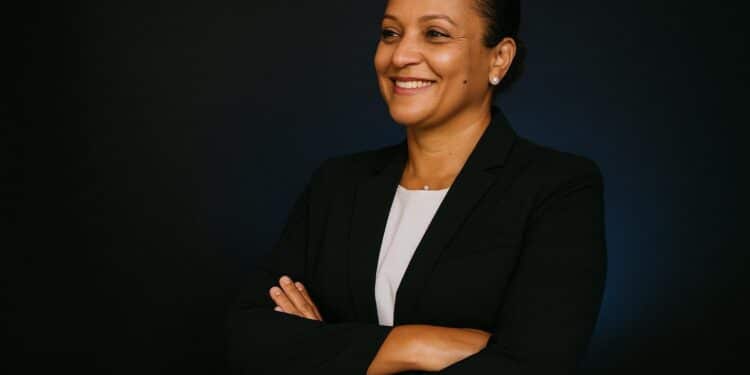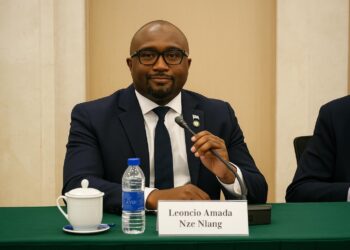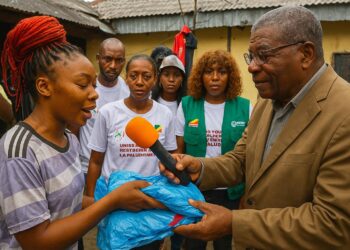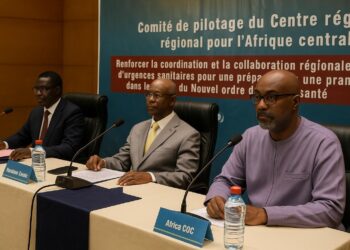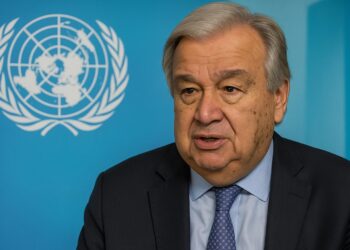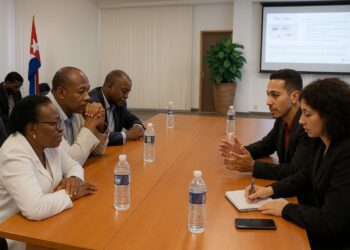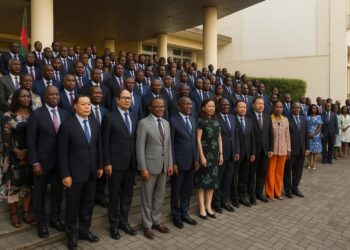Leadership change in Brazzaville
On 1 October, the Brazzaville country office of the World Bank Group opens a new chapter as Alexandra Célestin formally assumes duties as resident representative. Her arrival signals a deliberate push to deepen strategic dialogue between the international institution and the Republic of Congo’s administration and business community.
The Haitian national succeeds Louise Pierrette Mvono, who returned to Gabon after consolidating operations in Congo. By building on her predecessor’s groundwork, Célestin is expected to advance a refreshed Country Partnership Framework that aligns multilateral resources with Brazzaville’s development agenda and the nation’s medium-term fiscal consolidation path.
A career anchored in finance and resilience
According to a brief issued by the World Bank Group, the incoming representative will focus on three inter-related pillars: strengthening working relations with government and private stakeholders, leading the design of the new partnership strategy, and managing the Brazzaville office with heightened professionalism and an inclusive team spirit.
Célestin joined the International Finance Corporation in 2006 and most recently served as regional lead for financial services in Central and West Africa. That post required navigating complex regulatory environments, unlocking capital for low-income markets, and catalysing investment even in fragile states affected by conflict.
Her practitioner’s lens is further sharpened by earlier senior roles in Haitian commercial banking and a master’s degree in finance from the University of Illinois at Urbana-Champaign. Observers therefore expect analytical rigour and pragmatic risk assessment to characterise the Bank’s forthcoming interventions in Congo.
Aligning with Congo’s development priorities
Fiscal authorities in Brazzaville welcome the timing. Preparations for the 2025–2029 National Development Plan are underway, and multilateral support will be crucial for diversifying revenues beyond hydrocarbons, enhancing debt management, and financing climate-resilient infrastructure across forestry, transport, and digital connectivity.
The private sector, especially small and medium-sized enterprises, also sees opportunity. World Bank and IFC programmes now under evaluation could expand guarantee schemes, fintech corridors and supply-chain finance, giving domestic firms cheaper credit and a structured route into regional markets aligned with the African Continental Free Trade Area.
Framework preparation and inherited portfolio
Inside the Bank, the new representative will steer the internal review that precedes each Country Partnership Framework. That process typically grades the business environment, human capital indicators, governance standards and spatial disparities, then matches them with scalable projects and analytic instruments.
Louise Pierrette Mvono leaves behind a portfolio that includes energy transmission upgrades, community forestry programmes and fiscal transparency support. Stakeholders credit her tenure with reinforcing dialogue on debt sustainability after oil-price swings in 2020-2021, creating the platform upon which Célestin can now build.
Synergies with national reform agenda
The Brazzaville office’s upcoming workload is expected to mirror the government’s priority list: accelerate electrification, modernise ports, digitise public services and foster agro-industrial value chains. Each domain dovetails with ongoing reforms under President Denis Sassou Nguesso’s economic recovery agenda, which emphasises job creation and regional competitiveness.
Financial discipline will remain a central theme. Congo’s public-debt-to-GDP ratio has been declining after restructurings and higher oil receipts, yet multilateral lenders still advise cautious borrowing, enhanced procurement oversight and expanded domestic revenue mobilisation to guard against external shocks.
Célestin’s financial-sector background positions her to translate those macro messages into bankable operations. Analysts expect emphasis on treasury-bond market development, risk-sharing facilities with local banks, and capacity-building for credit registries, all measures that can deepen the financial ecosystem without widening sovereign liabilities.
Financing tools and regional spillovers
Development partners interviewed in Brazzaville highlight another reason for cautious optimism. The World Bank’s internal reorganisation, unveiled last year, grants country directors more flexibility to blend concessional and commercial instruments. That autonomy could allow Célestin to bundle IFC equity, IDA credits and trust-fund grants within the same project pipeline.
For local businesses, the symbolic value of a Haitian representative should not be underestimated. Congolese entrepreneurs often cite shared narratives across the Global South, arguing that executives who navigated similar constraints abroad are more likely to tailor solutions that fit domestic realities.
Official statements remain circumspect about exact funding envelopes, yet sources close to the Ministry of Finance suggest negotiations could unlock additional resources once the partnership framework is formally endorsed by the Bank’s Board in Washington. The timeline typically spans nine to twelve months from initial consultations.
Regional observers note that the Congo-Brazzaville office often acts as a reference point for neighbouring countries with similar economic structures. Success in integrating climate finance, forest conservation and private-sector mobilisation here could influence programmatic choices in Cameroon, Gabon and the Central African Republic over the coming cycle.
A cautiously upbeat countdown
Stakeholders remain cautiously confident as October approaches.

































